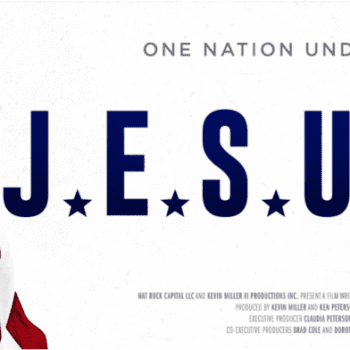 Pastors have a frequent question when they begin to discover mimetic theory. “That’s great. But how does it preach?”
Pastors have a frequent question when they begin to discover mimetic theory. “That’s great. But how does it preach?”
Reverend Tom Truby shows that mimetic theory is a powerful tool that enables pastors to preach the Gospel in a way that is meaningful and refreshing to the modern world. Each Wednesday, Teaching Nonviolent Atonement will highlight Tom’s sermons as an example of preaching the Gospel through mimetic theory.
In this sermon, Tom explores Lent as a time to fertilize our lives so that we change our hearts and align ourselves with God’s love and forgiveness. Tom provides this warning if we refuse, “If we don’t bear the fruit of repentance, forgiveness, and mercy in our dealings with our neighbor and enemy, the tree will be cut down and we will be the ones who do the cutting.”
Year C, Advent 3
February 28th, 2016
By Thomas L. Truby
Luke 13:1-9
Manured to Produce Fruit
Jesus speaks to a crowd. When the south wind blows, you say, there will be scorching heat; and it happens. When a cloud bank rises in the west, you immediately say, it is going to rain; and it does. You hypocrites! You can interpret the weather but you can’t interpret the present time even though it is as obvious and predictable.
Jesus calls them “hypocrites” suggesting they could see the patterns but choose not to. What do they not want to see? Perhaps they don’t want to see their rivalry with their neighbor or enemy or brothers, or sisters.
The next section in my study Bible entitled “settling with your opponent” appears unrelated but actually provides the key to why they are hypocrites. It begins “And why do you not judge for yourselves what is right” when you are in dispute with your neighbor. Why don’t you talk it through, figure out what’s best for everyone and then implement it. No, instead you each want to be declared right by some exterior authority. You want to win against your opponent and so you drag yourselves before the judge who hands you over to the officer and the officer throws you in prison.
Circling back to the issue of hypocrisy, do we fail to read the signs of the times because our desire to win blinds us? We get so focused on our neighbor, on our getting ahead of them or falling behind them, that we lose touch with the bigger picture. Our eyes, centered on our neighbor, fail to notice the real threat coming from another quarter. And the real threat is the looming violence that our conflict with our neighbor is generating for everyone and everything around us.
Jesus says we don’t interpret the times with the same precision as the weather because we desire to win and we fear losing and this causes us to dismiss obvious and critical information. We make winning more important than the truth and the deepest truth is that we are in relation with the whole world as brothers and sisters. The non-recognition of this truth, unchecked, will destroy us. That’s the truth!
We can figure this out! We don’t need to bring this to a head where we put ourselves before a judge, lose control, and find ourselves in prison with huge fines. Isn’t that what war is? It’s a kind of judge where each side brings its case and both sides lose control, find themselves in a hell of their own making with costs far exceeding what they had expected and stretching out far longer than they had ever intended. Well, as it turns out, all of this has been a preamble to today’s gospel lesson.
“At that very time there were some present who told him about the Galileans whose blood Pilate had mingled with their sacrifices.” Some Galileans were sacrificing animals on the altar at the temple when Pilate had them murdered and their blood mingled with the blood of the animals. Sacrifice is supposed to prevent murder by your Roman enemy. That’s why you offer them. I do this for you, God, and you protect me in exchange. And yet these Galileans had been killed in the Temple while in the act of sacrificing. How do we make sense of that?
Did God fail keep his end of the bargain? That’s unthinkable and would be blasphemy so Jesus asks the next obvious question. “Do you think the suffering of these Galileans proves that they were more sinful than all the other Galileans?” Were those Galileans so much more sinful than all other Galileans that not even sacrificing in the temple could save them?
But what if there was no tit-for-tat contract to begin with, that all along that’s what we do to try to manipulate God, make God in our image and artificially reassure ourselves. If you think that, how would you bring that into the conversation?
Maybe you would say, “No, I tell you, but unless you change your hearts and lives, you will die just as they did.” Those dead Galileans weren’t more sinful than the rest of you but unless you change your hearts and lives, you will die like they did. What did he mean?
Jesus now brings his own illustration that ups the ante and deals directly with “an act of God” rather than a human act. A tower fell in Jerusalem killing eighteen people. “Do you think they were more guilty of wrongdoing than everyone else who lives in Jerusalem?” “No, I tell you, but unless you change your hearts and lives, you will die just as they did.” What does he mean?
The crowd to whom Jesus is speaking lives in a tit-for-tat world where they have done their part, or hope they have, and so think themselves safe. But in fact they don’t live in a tit-for-tat world. They live in a world of grace and forgiveness. They need to change their hearts and lives to line up with this or they will surely die as the eighteen did; namely, die thinking they have failed God. Either God doesn’t do tit-for-tat or they didn’t do enough for God to do his part. And so they live in fear of this happening to them.
Now Jesus tells a parable. “A man owned a fig tree planted in his vineyard.” What is a fig tree doing in a vineyard? “He came looking for fruit on it and found none. He said to his gardener, ‘Look, I’ve come looking for fruit on this fig tree for the past three years, (an interesting number) and I never found any. Cut it down! Why should it continue depleting the soil’s nutrients?’”
At this point the farmer in me wants to speak up. Fig trees are very fast growers with a rank, almost tropical, kind of growth. I will bet they are very heavy feeders—in other words they suck up fertilizer and quickly deplete the soil they grow on. Grapes, the original crop in this vineyard, don’t need soil as rich as figs.
The owner wants to cut down the fig tree but the gardener says “Lord, give it one more year, and I will dig around it and give it fertilizer. Maybe it will produce fruit next year; it not, then you can cut it down.”
For me, this opens up a series of questions. Did the plant need manure in the first place and that’s why it has not produced fruit? Who is the gardener in the parable? How does the gardener do his digging around the base of the fig tree? What is the manure he digs into the soil? What would fruit look like? And finally, what is the meaning of this one-year deadline? Parables are highly imaginative and here’s what gets going for me.
The gardener is Jesus and his life and this parable are examples of his digging under this fig tree. He is stirring up the soil and preparing it to receive manure. It’s what we do in Lent. The fig tree is the human species, so different from the rest of God’s creation that it is like a fig tree in a vineyard. And we are heavy feeders too. And the manure, well, that’s the crucifixion of Jesus. It’s the fertilizer that makes fruiting possible. Prior to the application of fertilizer that fig tree could not produce fruit. For me that means we humans simply can’t see, on our own, what the cross reveals to us. On the cross God put himself in the middle of our tit-for-tat world and allowed us to kill him and then forgave us. If it were a tit-for-tat world Jesus would have called a legion of Angels and the fig tree would have been cut down right there and then. But he refuses to operate on that basis and instead forgives us and provides a way towards peace. Peace is the fruit.
This peace is for our whole world for he knows if we continue to live in a tit-for-tat fashion we will eventually and inevitable destroy ourselves. It’s as sure as south wind bringing heat and clouds in the west bringing rain. In the story the gardener adds “Maybe it will produce fruit next year, if not, then you can cut it down.” We live in that next year. Now is the acceptable time. The fig tree has been fertilized by the crucifixion of Jesus and we are in the time of waiting to see if we will bear fruit.
Now we come to the final question. Who owns the vineyard containing the fig tree? We do! We are the owners. If we don’t bear the fruit of repentance, forgiveness and mercy in our dealings with our neighbor and enemy, the tree will get cut down and we will be the ones who do the cutting. We will cut down the tree because we have produced no fruit of love and forgiveness even though we have been manured by the crucifixion of Jesus. This is the message on this third Sunday of Lent. Amen.
Image: Copyright: efired / 123RF Stock Photo











